#i finally rewatched this after seeing several gifsets on my dash lately
Explore tagged Tumblr posts
Text
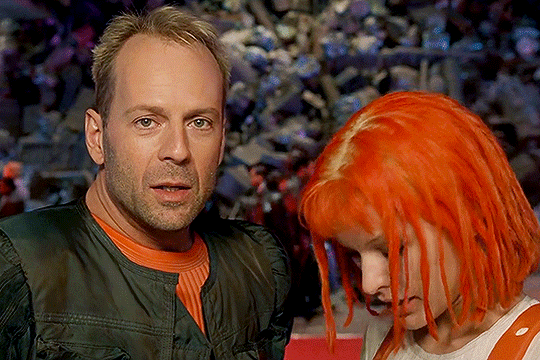

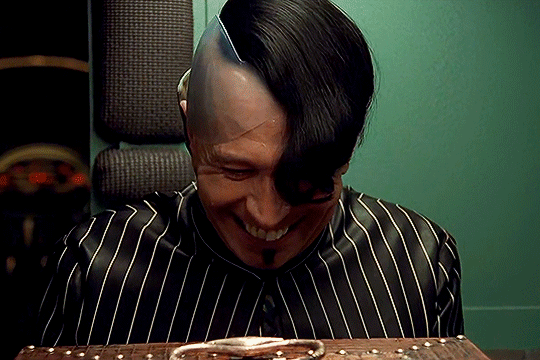

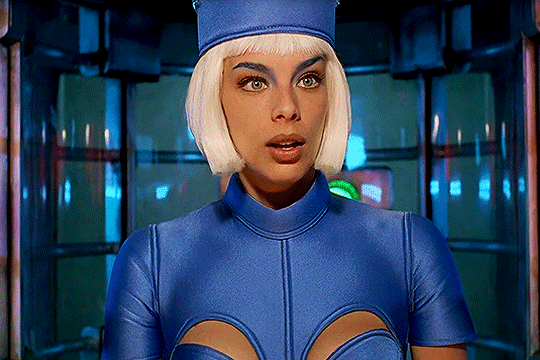


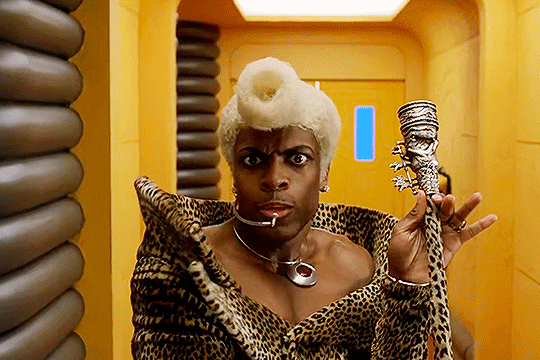

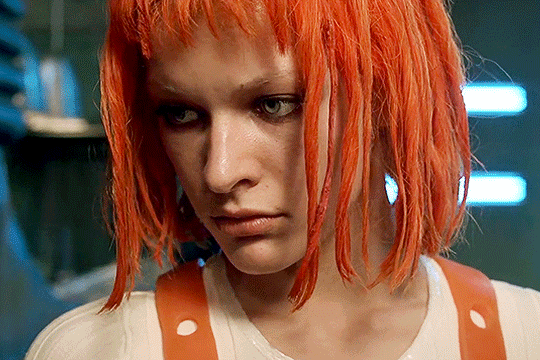
(re)watched in 2024: The Fifth Element
#the fifth element#bruce willis#milla jovovich#gary oldman#luc besson#i finally rewatched this after seeing several gifsets on my dash lately#and i still really love this fucking movie#it's ridiculous in all the right ways#(re)watched in 2024#rebel made
283 notes
·
View notes
Text
Yesterday I finally caught up with probably half of Tumblr and finished watching Sense8 (*hugs my new Netflix account*)...
I really enjoyed it and I guess it lives up to the hype, though waiting forever to watch it kind of took the edge off, since I was curious enough to examine every gifset on my dash for the last... couple of years? since it appeared. I really like how everyone’s so in love with the characters and their dynamics that despite learning a great deal about almost every character and their relationships, I 1: didn’t even know Naveen Andrews was in it and 2: had no idea what the main plot was and assumed it was mostly just a great big action/romance romp with random soulmate dynamics thrown in to spice it up. :P
And it’s brilliant as a soap opera ignoring the main plot, as several characters have pretty much nothing to do with it (yet? I started off trying to analyse the plot and linked up Capheus, Kala and Sun as the most important players in an epic biomedical scandal involving the businesses and such they’re tied up in that must surely link further back to all the sinister stuff with the real bad guys, and then of course nothing’s come of that yet in a season + Christmas special...) and definitely one of its main strengths is the characters and their relationships and interactions, especially as with so many ways to sort them, and some plots with a lot of one on one cross over, characters you’d come to know and love were still meeting each other for the first time fairly late on.
Anyway, Daryl Hannah floating around being the fridged woman with a remarkable resemblance to Mary Winchester aside (I feel so sorry for actresses whose entire role is wearing a dirty/bloodstained nightgown while making spooky appearances for the sake of the main characters :P) the actual plot seems like Orphan Black in many respects, and the more I think about it the more connections I make, aside from the obvious of Weird Science bothering a group of seemingly normal people who then discover they’re actually clones/soulmates with a whole bunch of other people they have uncanny connections to. By the end of the current season of Orphan Black, our protagonist clone is even having sustained visions of the clone who started the series with the suicide of one of their own who, like Daryl Hannah, kicked off the entire plot for the main characters, and her daughter seems to be psychically connecting to the other clones through the same Weird Science as Sense8. There’s a strong focus on life and death and altogether too much childbirth stuff on screen :P
I think Sense8′s advantage is that it’s much less confined by the format not just that it can be absolutely openly as diverse as it wants to be, but because without having to be somewhat procedural or else fitting the regular format of TV shows, you can get the really long, weird sequences which aren’t really doing anything except quiet, meaningful stretches of character stuff. There are story arcs per episode, but the entire thing moves incredibly slowly. I swear Orphan Black made the same progress through the plot in a handful of episodes as Sense8 has done so far in its entire run.
Obviously neither show is finished yet, and in several important respects Sense8 blows Orphan Black out of the water, with OB being included in the great Onscreen Queer Women Massacre of the start of the year it only just bought my interest but not my trust back by backpeddaling that... and even if they always intended to bring said murdered queer woman back, they’ve not allowed the couple in question to just exist happily and unapologetically, and inflicted that trope on us in the first place... they also DID apologise while at the same time doing it, admitted they were aware they should use a trans actor to play a trans character but because of the clone thing, still used Tatiana to play a surprise brother clone they threw in for one episode basically, I guess, to show something about variation etc, and at this point I don’t know if it’s for the best he’s not in a ton of episodes, although weird they never mention him again after that.
Sense8 has a much clearer sense of these issues, though its attempt to portray a broad stroke of human existence world wide has netted it a lot of criticism for stereotyping & racist tropes in those portrayals, which I’m not equipped to comment on, but as someone who wearily watches a lot of media, certainly none of the non-western, white, stories felt particularly unexpected or not like something I could see elsewhere... Orphan Black has mostly stayed clear of those issues by just not going near them; the actual cast when you narrow it down away from the character list is still very white. Throw in the dozens of versions of Tatiana and the other clone guy and they’ve got endless room to add in as many more characters as they like, obviously all versions of the same white actors dressed up differently.
... in any case, Sense8′s plot gave me a fair amount of deja vu to the show I’d already watched, but because OB put me off several times (and yet I kept coming back to it :P) I don’t have a very clear memory of the first season’s plot to make a stronger side by side comparison. I’m mostly intrigued by the sense of the huge terrifying rich biotech and medical corporations, doing Weird Science juuust beyond the range of what we can understand now, or with a slight science-fantasy element to it, relying on real world conspiracies or Fortean Times level suspicions of what might possibly be real if you wanted to believe tales of precognition, telepathy, etc. In Sense8 there’s a few mentions of ~real~ stories of such things, but I can’t remember if OB went over it yet.
Certainly in both there’s a sense of unity and impossible but unbreakable family bonds, and a lot of exploration of who the Self is vs these huge faceless corporations. OB cycles through several villains or weird cults and such as the bad guys, each one in turn unknowable but powerful or embedded in a way with science or military or religious connections that make them dangerous to go up against. It’s hard to tell exactly what message Sense8 has about it because so much less plot involving it has unfurled but it’s obviously not good news with the big corporations, definitions of humanity, and secret conspiracy to police what is human and what is not. It even sets the entire viewing audience against the Sensates as part of a mass of non-sensate people who lack the emotional connection and empathy to feel like they do, implying the whole lot of us are murderous and cold as a result... In this way the evil scientists out to get them are only the very personal version of ALL the struggles they face, represented by that moment in the Xmas special where they all see the writing on the wall at Lito’s house transform into the worst things they have been called.
It takes a much colder view of humanity, making it us or them, and for us, switching which of those groups we identify with by way of sympathy to the main characters. OB is less personal in that way but focuses on the dangers of science trying to create a better human, and while the clones are supposedly all “improved” humans, they have enough flaws, physically and emotionally (although yikes, Krystal makes me sure they have latent super soldier genes none of the others have properly unlocked except maybe the unkillable Helena :P) that they don’t come across as totally othered for more than the unfortunate circumstances of their births they obviously didn’t ask for. Rachel as the only one raised in the know ends up the most dangerous of them all, perhaps for having her sense of humanity denied to her and knowing for most of her life that she was only an experiment and property of the company. What makes the rest of humans human isn’t in question so much as how much the clones might belong with humanity, and that they could grow up oblivious and fit in emotionally, and still have human values even when they discover they’re “only” property and experimental prototypes who’ve been living almost Truman show lives. In that respect, Sarah as the narrator is the most free and human because she was raised outside of the program with no influence from it whatsoever - narratively it’s not coincidental that she and Helena are also the only clones who are fertile and can have children.
... I’ve been making connections all day but this post is really long now so I’m going to stop here. I want to rewatch Orphan Black now, since I noticed it on the Netflix menu and I’m having a bit of a cackling wildly, world at my fingertips moment here. :P
#...#long post for ts#really long post#I really hope that mobile user thing isn't still true#I thought it was only when viewing blogs directly instead of on the dash#okay that's all the tag padding :P#sense8#orphan black#just some thoughts comparing them at great length#I really want to analyse the ethics they're trying to convey better but I need to A: rewatch orphan black and B: wait for season 2 of Sense8
4 notes
·
View notes